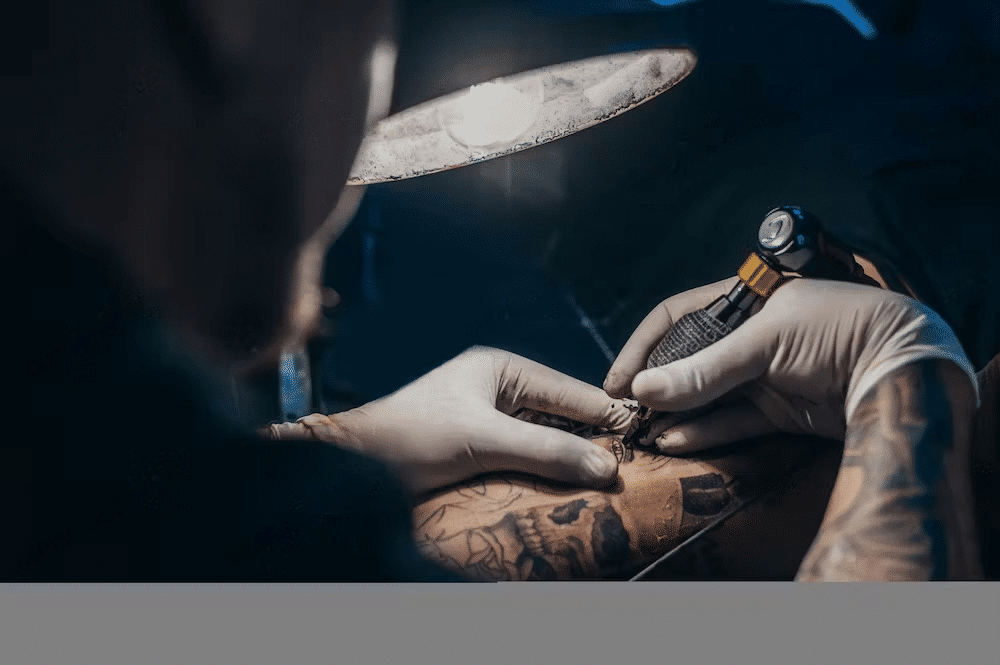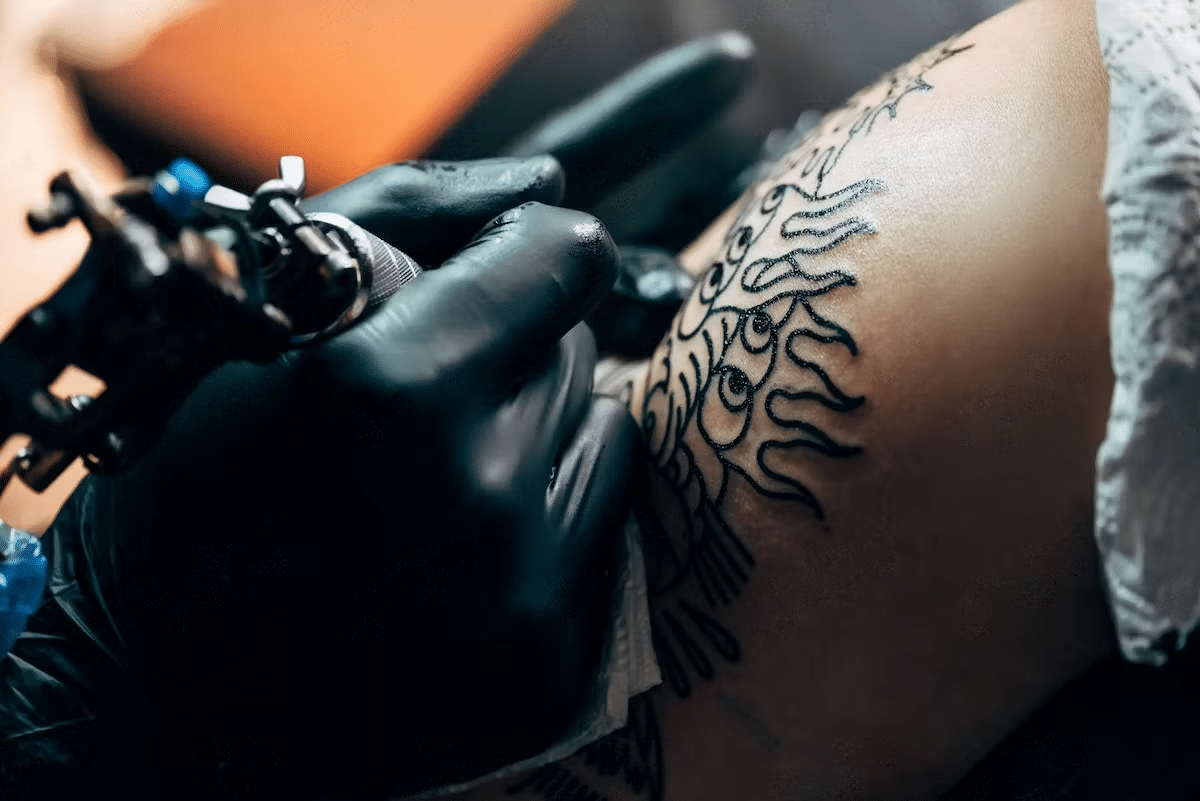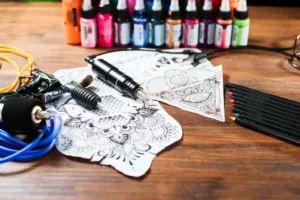You are not the only one who scratches at their tattoos.Itching can happen at any point in the healing process, although it is most common when a tattoo is still relatively new. This is because the skin is injured by the needles and ink used during the procedure.Despite this, it is important not to scratch your tattoo, no matter what the reason may be, especially if it is fresh ink that is still healing. Both the tattoo and the surrounding skin may suffer severe harm due to this.Continue reading to learn more about the various reasons tattoos might get itchy and how to manage them without scratching.
Causes Of An Itchy Tattoo

Itching is a common problem among tattoo owners, especially those with
newer tattoos. The causes of an itchy tattoo can vary and range from allergies to the ink or the skin’s reaction to being punctured by the needle.Other possible causes could be an infection, dry skin, or even a reaction to the body’s immune system. Regardless of the cause, it is important to take steps to minimize any potential discomfort associated with itching.
Normal Healing Process
Getting a tattoo is a unique experience that offers a lifetime of memories. As the skin begins healing, it’s important to be aware of the changes.As your skin heals from a wound, it’s natural to experience some discomfort. By understanding the changes taking place in your skin, you can ensure that your tattoo heals properly and continues to look beautiful for years to come.
Infection
A fresh tattoo makes deep layers of the skin’s dermis and epidermis (upper and middle layers) visible. Your new tattoo is most susceptible to infection within the first two weeks of healing.You may suffer itching, swelling, redness, and discharge if the region is infected. Fever and chills can be symptoms of severe illnesses. A trip to the doctor is probably necessary if there is an infection.
Allergic Reaction To Pigment
The tattoo ink itself might cause allergic reactions in certain people. Dye products manufactured from plastic are sometimes used to create tattoo pigments.An
allergic reaction can manifest right away or even years after obtaining a tattoo, according to the American Academy of Dermatology (AAD). You may get intense itching as a result, along with redness and pimples that resemble bee hives.
Ink Contamination
Tattoos have become increasingly popular over the years, with more and more people choosing to express themselves through this art form. However, many don’t realize that tattoos can also be a source of health risks.They can cause allergic reactions to the inks used and may also contain toxic substances that can cause symptoms if the ink is contaminated or not marked as “sterile”.If you experience excessive or prolonged itching, redness, swelling, or other signs of infection, it’s important to consult your tattoo artist or a healthcare professional. They can help determine the cause of the itching and provide appropriate treatment.
Treating An Itchy Tattoo
The underlying cause will determine the best action for an itchy tattoo.Body art is becoming increasingly popular as a way for people to express their personality and creativity. However, it’s important to take extreme caution when dealing with newly-inked tattoos, as they are particularly vulnerable to infection and injury.Taking the right steps to care for your tattoo can ensure that your body art looks its best and lasts for years. Let’s look at some recommendations:
OTC Creams And Ointments
If you are thinking of adding a tattoo to your body, it is important to understand the proper application and care for these art pieces. Generally speaking, applying over-the-counter creams or ointments on fresh tattoos is not recommended.Doing so may interfere with the natural healing process and potentially harm your skin in the long run. However, on an itchy, old tattoo, you can use topical treatments that contain aloe vera or hydrocortisone to soothe the skin.
Cool Compresses
Applying cool compresses is a great way to reduce swelling, itching and irritation that can occur during the healing process of a fresh tattoo.However, seeking your doctor’s advice before applying any compresses is important, as certain conditions or medications may require special instructions. The Nemours Foundation recommends seeking medical advice before using any compress on a recent tattoo.
Keep The Area Moisturized
Moisturizing may be the answer if your skin is both dry and irritated. Choose an oatmeal-based lotion or a heavier cocoa butter moisturizer for old tattoos. Avoid products containing colours and fragrances because they could irritate your skin even more and unintentionally make it itchier.Consult your tattoo artist for advice on the best ways to moisturize new tattoos. Some tattoo artists advise against using specific moisturizers or chemicals because they might remove fresh ink. Typically, an unscented, fragrance-free hand lotion is preferred.
Conclusion
Following your tattoo artist’s aftercare instructions is important to avoid itchy tattoos. The following tips and strategies mentioned above will help you avoid getting an itchy tattoo and lessen the chance of infection.This typically involves keeping the tattoo clean and dry, avoiding exposure to sunlight or water, and refraining from scratching or picking at the tattoo. If you experience excessive itching or other symptoms, seeking medical attention is important to ensure that the tattoo is healing properly.Now, what are you waiting for? Start caring for your new tattoo and be observant of the symptoms to avoid long-term damage to your skin!
FAQ
Can I rub my tattoo if it itches?
It’s extremely important not to rub, pick, scratch, or peel your tattoo! If you do, you will lift the scab and pull the ink out, leaving your tattoo with missing ink and scars.
If your tattoo is itchy, lightly tap it or apply an ice pack. -Your skin will peel and flake as it heals, some of which will be colour tinted.
What cream is good for itchy tattoos?
The tattoo should peel like a sunburn and itch as the skin repairs itself. If you experience severe itching, use
hydrocortisone 1% anti-itch cream (available at any drug store or supermarket) to help control the itch.
Is it normal for a tattoo to itch after a month?
Itching, bumps, or rashes can occur days, months, or even years after the initial tattoo. These reactions
need to be treated with a topical steroid ointment. In cases where an allergic reaction occurs months or years later, the affected person might not suspect that the tattoo is the culprit.
 Itching is a common problem among tattoo owners, especially those with newer tattoos. The causes of an itchy tattoo can vary and range from allergies to the ink or the skin’s reaction to being punctured by the needle.Other possible causes could be an infection, dry skin, or even a reaction to the body’s immune system. Regardless of the cause, it is important to take steps to minimize any potential discomfort associated with itching.
Itching is a common problem among tattoo owners, especially those with newer tattoos. The causes of an itchy tattoo can vary and range from allergies to the ink or the skin’s reaction to being punctured by the needle.Other possible causes could be an infection, dry skin, or even a reaction to the body’s immune system. Regardless of the cause, it is important to take steps to minimize any potential discomfort associated with itching. Itching is a common problem among tattoo owners, especially those with newer tattoos. The causes of an itchy tattoo can vary and range from allergies to the ink or the skin’s reaction to being punctured by the needle.Other possible causes could be an infection, dry skin, or even a reaction to the body’s immune system. Regardless of the cause, it is important to take steps to minimize any potential discomfort associated with itching.
Itching is a common problem among tattoo owners, especially those with newer tattoos. The causes of an itchy tattoo can vary and range from allergies to the ink or the skin’s reaction to being punctured by the needle.Other possible causes could be an infection, dry skin, or even a reaction to the body’s immune system. Regardless of the cause, it is important to take steps to minimize any potential discomfort associated with itching.



